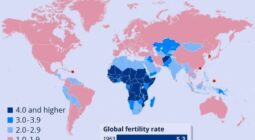73rd anniversary of Independence: Happy Birthday Israel
With the establishment of their diplomatic relations on June 1, 1960, Nepal became the first South Asian country to establish diplomatic relations with Israel at embassy level even during the time when most of the Asian countries including China and India had no formal diplomatic relations with Israel.
Since the establishment of diplomatic ties between Nepal and Israel the leaders from both the nations have expressed satisfaction on the state of bilateral relations that grew and consolidated in the past six decades and committed to further strengthen it in the future.
Besides high level engagements at bilateral and multilateral forums, people to people contacts from Nepal-Israel is also remarkable. The high profile visits from both the sides strengthened two nations’ ties.
Israel has been contributing on many development projects ranging from agriculture, health, infrastructure and community development in Nepal.
Nepal is the land of birth place of Buddha whereas Bethlehem of Israel is known as the site of Jesus Christ’s birth.
Nepal and Israel are thousands of miles apart. Nepal is located in the snow-covered adventurous Himalaya ranges including Mt. Everest – the earth’s highest peak whereas Israel is a home to the lowest place on earth- the Dead Sea.

In 2012, marking 52 years of diplomatic relations between Nepal and Israel, both the nations issued a joint postal stamp featuring the highest (Mount Everest) and lowest places on the earth (Dead Sea) at the same time in Nepal and Israel respectively.
In 2015, when the whole world was shocked over the catastrophic earthquake in Nepal that claimed thousands of lives and destroyed hundreds of thousands of homes, Israel was among the first countries to send humanitarian aid to Nepal. During the times, many Israeli NGOs like Tevel b’Tzedek and IsraAID had helped Nepal on community development and humanitarian assistance.
As per an unofficial data of the Nepal Government, thousands of Nepalese workers are currently working in various sectors as caregivers, factory workers, cooks and many other professions in Israel. However, to boost the employment opportunity for the Nepali youth, both the nations have already signed a G2G agreement.
Thus, no doubt, the foundation of Nepal-Israel relations is based on the principles of trust and understanding building huge potentiality for future cooperation.
Nepal is said to be the attractive adventurous destination for the young Israeli tourists for holiday after their compulsory military service. Thus, as per the Nepal’s Tourism authority’s reports every year hundreds of Israeli tourists visit Nepal for Himalayan adventure.
Anyway, Nepal and Israel are enjoying warm and cordial ties based on deep friendship, generous commitment, goodwill and mutual understanding, Israel’s technological superiority and Nepal’s rich human resource should continue in future for the benefit of both the countries and they should jointly explore other possible areas of cooperation.
Long live Nepal-Israel relationship.
Interesting Realities
The tiny country in the Middle East Israel is 73-year-old on April 15. Israel takes in more immigrants than any other country in the world per capita. Since it was founded in 1948 3.3 million people have immigrated to Israel. When Israel was founded in 1948, there were only 806,000 residents. The population reached two million in 1958, and is expected to reach 10 million in next three years. In 2020, 28% of Israel’s population was under the age of 14, and only 12% older than 65.
More than half the landmass of Israel bordered by snowy peaks at one end and a desert beach on the other is desert. But as per the Economist Intelligence Unit report of 2020, Tel Aviv was named the 5th most expensive city in the world to live in.
Even though, having 137 beaches Israel recycles 90% of the waste water it creates, making it the leading nation in the world for water recycling. Over 85 per cent of Israeli households get hot water from rooftop solar heaters.
“A meal without a salad is not a meal even in breakfast” is the Israeli tradition. Israelis eat some 24 million sufganiyot (donuts) during the eight-day holiday of Hanukkah. It is also said that cows in Israel produce more milk on average than do dairy cows in other countries.
With an average of three children per woman, Israel has the highest fertility rate among the 37 countries in the OECD, where the average is 1.7. A leader in medical clowning Israel is also considered as the highest number of altruistic kidney donations per capita in the world.
Israel is the only country to have revived a dead language and made it the national language. In Israel’s postal service has a special Letters to God department.
Israeli toilets have two handles: A smaller one that releases less water to flush down #1, and a larger one that elicits more water to get rid of #2.
(Some facts are taken from Israel21c)









